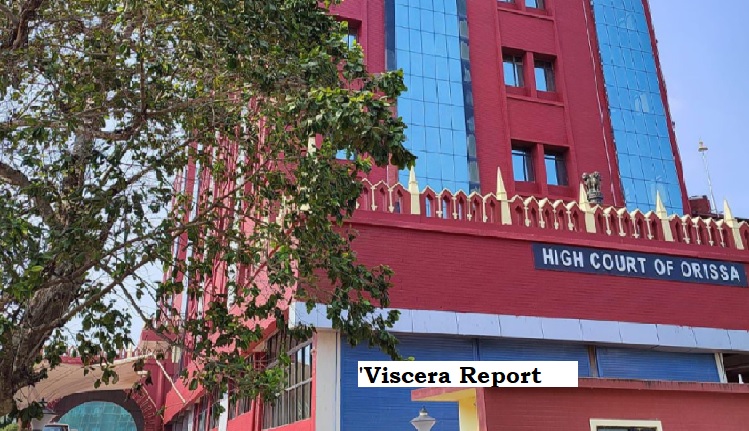


The Orissa High Court, in a recent ruling, has reiterated the imperative nature of investigative agencies to fulfill their duty by sending viscera samples for chemical examination in all suspected cases of poisoning-related murders. The court emphasized that such agencies must subsequently present the viscera report before the trial court after obtaining it from the Forensic Laboratory. Failure to adhere to this protocol, according to the court, constitutes misconduct on the part of the investigating officers.
The Division Bench, comprising Justice Sangam Kumar Sahoo and Justice Chittaranjan Dash, scrutinized a case where the police had neglected to secure a viscera report despite suspicions of poisoning. The court, terming this omission a 'misconduct,' referenced the directives of the Hon'ble Supreme Court, stating that the failure to send viscera for examination and collect the subsequent report from the Forensic Science Laboratory amounts to a clear dereliction of duty and a violation of the Supreme Court's orders.
The case in question involved an appeal against the trial court's judgment, which had found the appellant guilty under Section 302 of the Indian Penal Code for the murder of the deceased through the administration of poison-laced milk. Dissatisfied with the conviction, the appellant approached the High Court to challenge the order.
To assess whether the deceased had suffered a homicidal death, the court examined the evidence provided by the doctor who conducted the post-mortem examination. Despite the doctor's inability to determine the exact cause of death, a viscera sample had been preserved for chemical examination. The doctor, however, only opined that the death had 'probably' occurred due to the consumption of endosulfan insecticidal poison.
The court noted that although the viscera was reportedly sent for chemical examination to the State Forensic Science Laboratory (SFSL), the viscera report was not produced before the trial court. Additionally, there was no evidence that the investigating officer had obtained the viscera report from the SFSL, nor did the doctor express any opinion regarding the specific cause of death.
Highlighting the significance of viscera reports in suspected poisoning cases, the court referred to the Supreme Court's judgment in Chhotan Sao v. State of Bihar (2013). In this case, the Supreme Court emphasized the role of Public Prosecutors and trial courts in ensuring the production of viscera reports, stating that the investigating officer should not submit a charge sheet without securing the viscera report and presenting it before the court.
Citing these precedents, the Orissa High Court held that the failure of the police to send a viscera sample for chemical examination and present the report before the trial court constituted a serious lapse in the investigation and a violation of Supreme Court directives. The court emphasized that both the investigating officer and the Scientific Officer were accountable for such oversights.
In the absence of conclusive evidence and considering the lack of implication of the appellant in the oral dying declaration made by the deceased, the court exercised its discretion to give the benefit of doubt to the appellant. Consequently, the appellant was acquitted of the murder charge.
This ruling serves as a reminder of the procedural and evidentiary standards that investigating agencies must adhere to, particularly in cases involving suspected poisoning, to ensure a fair and thorough investigation and trial. The court's emphasis on the importance of viscera reports underscores their critical role in establishing the cause of death and securing justice in criminal cases.
TAGS: Misconduct Supreme Court directives Division Bench Trial court Indian Penal Code (IPC) Homicidal death